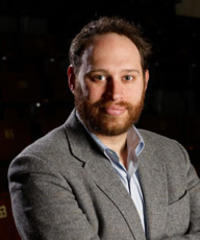
Spiegel, professor of chemistry, and his research lab were recently awarded a grant that has the potential to transform treatments for cancers, diseases, and multi-drug resistant microbial infections.
Spiegel is the PI of a program to utilize a novel protein degradation technology – termed Molecular Degraders of Extracellular Proteins (MoDEs) – to allow a flexible and rapid response against emerging microbial threats.
The Harnessing Enzymatic Activity for Lifesaving Remedies (HEALR) program aims to produce drugs that target and eradicate highly resistant and immune-evasive bacterial infections, ultimately shortening recovery time, reducing injury complications, and saving lives of warfighters. The Defense Advanced Research Projects Agency has awarded a $13.5 million grant over five years to support the application of molecular degraders of extracellular proteins to fight military biothreats.
Much like the discovery of penicillin led to a significant reduction in the number of deaths by infection, HEALR aims to save millions of warfighters from bacterial infections by speeding up recovery and controlling infection. The Yale team will contribute to the program by using synthetic chemistry and the body’s own protein recycling systems to destroy bacterial pathogens.
The Spiegel research lab develops novel paradigms for how synthetic molecules can be used to treat disease. The HEALR researchers will leverage their expertise in chemical biology, medicinal chemistry, and microbiology to reshape the field of antimicrobial therapeutics.
Learn more about the Spiegel Research Lab.